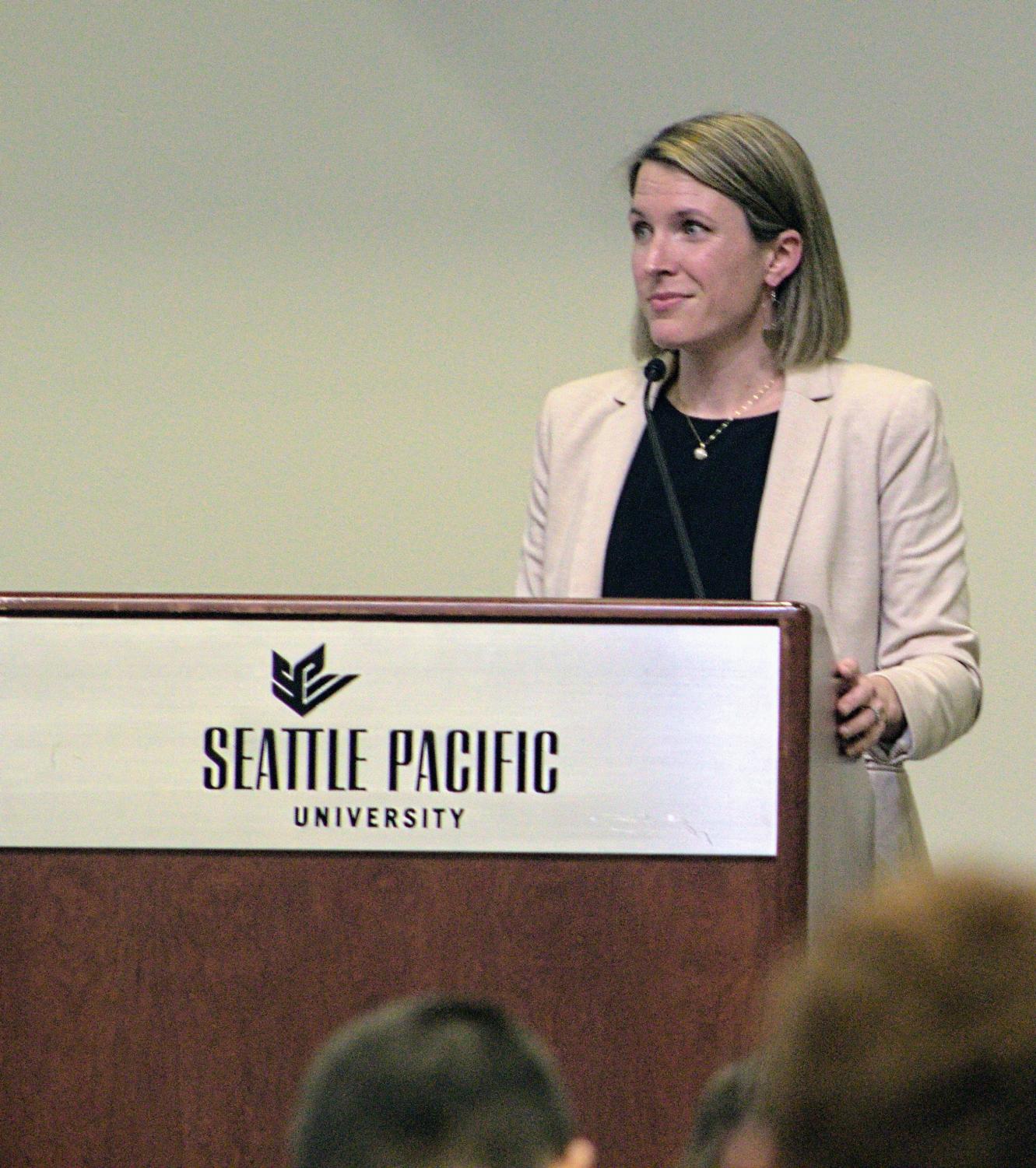The future is up to you
Gen Z, the War on Terror
April 27, 2023

If you are a student reading this article, chances are that you were not even born yet when the attacks of Sept. 11, 2001, took place. Few of you were alive when the U.S. invaded Afghanistan on Oct. 7, 2001, or when the first detainees arrived at Guantanamo Bay on Jan. 11, 2002. Some number of you were just taking your first steps when the U.S. invaded Iraq on March 17, 2003. These key events in the period known as the “War on Terror” were clearly not choices made by your generation.
However, the legacies of these wars and policies continue to shape the world that you are preparing to enter as adults. The choice now belongs to your generation to right these wrongs.
Let me explain what I mean: here are three examples of why Gen Z should care about the War on Terror.
First, Guantanamo Bay is still open. In 2001, the U.S. created Guantanamo Bay to hold alleged terrorists from al-Qaeda, which was responsible for the attacks of Sept. 11. Students in my classes can tell you that, of the 780 detainees who were held in Guantanamo Bay, only 11 individuals were ever charged with a crime, and so far, only one has been convicted.
The CIA authorized the use of torture against many of these detainees during their interrogations. In other words, a lot of innocent people were horribly harmed. This dark chapter of human rights abuses is not relegated to a distant past; however, dozens of detainees still remain at Guantanamo Bay today. Some detainees have waited for more than 20 years for court despite normal constitutional guarantees to a speedy trial.
A small number are known as “forever detainees”: they have never been charged with a crime, but the US has no plans to ever release them. HBO recently released a documentary about one such “forever prisoner,” Abu Zubaydah, who was also the first detainee to undergo abuse in the CIA’s torture program. How is that even possible?
The Authorization for the Use of Military Force passed by congress in 2001 is still in effect. Legally, the War on Terror is not over. As long as Guantanamo Bay remains open, our country cannot address and repair the harm. Closing Guantanamo Bay is now the responsibility of your generation.
Second, the U.S. War in Afghanistan is the war of your generation. The 20 years of U.S. occupation played out from your infancy to your journey to college, inextricably intertwined with the milestones of your life. Students and colleagues with personal ties to Afghanistan keenly felt each development over the past two decades, while others of my students tell me that the U.S. war felt merely like “background noise” to their lives. After 20 years, how many can find Afghanistan on a map?
SPU professor of Global Development, Dr. Mohammed QadamShah, has written extensively about the impact of U.S. and international aid and political involvement in Afghanistan to the corruption and failures of the post-2001 Afghan government. These failures contributed to the return of the Taliban to power in 2021. The consequences of the Taliban’s return are not far off, but hit close to home, as Western Washington is home to one of the largest communities of Afghan refugees in the United States. Welcoming our Afghan neighbors is a calling for your generation, as it is for all of us.
Finally, I recently spoke at the Weter Lecture about the 20th Anniversary of the U.S. invasion of Iraq. Iraqi Gen Z students and young adults are still fighting for a better future, to overcome the legacy of the negative consequences of U.S. war and foreign policy in Iraq. The U.S. bears a lot of responsibility for the challenges facing Gen Z Iraqis today.
How can you show up for your counterparts? A simple, but profound, way to start is by listening to Iraqis’ stories. Follow influential leaders of Gen Z Iraqis on social media, learn about the Tishreen protest movement by young Iraqis in 2019-20 and hear their experiences and perspectives in new grassroots, bilingual news sites like Jummar.
I know that it may not seem fair to place the burdens of the past on the generation of the future (though as a Millennial, I know how it feels: I’m looking at you, Boomers). But the past is always shaping the present. Learning about the origins of today’s problems can equip us to address these issues in the future – and yes, that is a shameless plug to take more history classes.
The world you are graduating into is a world shaped by the legacies of the War on Terror era. The hope and the calling is that your generation can finally right these wrongs and begin to repair some of the damage. At the very least, we can learn more about these legacies so that your generation will not repeat the same mistakes of the past.
























































































